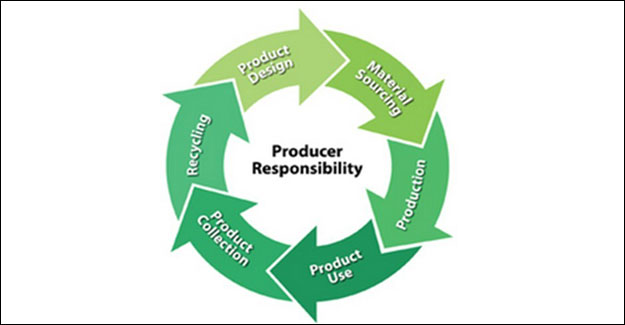
France Expands Producer Responsibility To Certain Textile Items
France has broadened extended producer responsibility (EPR) so as to cover textile decoration items when they are discarded, i.e., become waste (the Decree). The Decree sets out the scope of the products concerned and provides a framework for the taking up of responsibility by French eco‑organisations for the costs to be incurred by textile collection operators of discarded textiles. An additional Order published alongside the Decree completes the system by setting up collection, recovery, reuse and recycling targets (the Order). The following textile furnishing items are newly covered by the French Decree: the decoration on walls, floors and windows of removable finished products based on natural or synthetic textiles, as well as their accessories, regardless of the materials from which they are composed. Hence, items such as carpets, rugs, curtains, drapes and their accessories (regardless of the materials that make up these accessories) are covered by the definition. Fabric blinds are not covered here, as they are intended to be covered under the EPR for building products and materials. As for the Order, it sets out three objectives for 2027, for approved eco‑organisations, namely (i) a separate collection rate of 45% in the case of textile decoration items, and (ii) a recovery rate of 87%, including 21% by reuse and recycling. To achieve these objectives, the Order establishes the following targets for 2023: (i) a separate collection of 14% of textile decoration items, and (ii) a recovery rate of 83%, including 9% by reuse or recycling. Some of these textiles are already being collected alongside used clothing by so‑called “social economy” operators under contract with “Refashion”, the EPR sector's eco‑organisation for clothing, household linen and shoes. The social economy comprises a diversity of enterprises and organisations such as cooperatives, associations, foundations, ethical banks and social enterprises. The costs of waste management of the textile decoration items covered by the Decree will be borne by the eco‑organisations handling the already existing EPR for waste furnishing items; such eco‑organisations will financially contribute to “Refashion”. France’s Anti‑Waste and Circular Economy Law is steadily moulding a systemic transition towards a circular economy, probably the world’s first in terms of its ambitions. The law has already introduced several measures that are likely to impose novel burdens, especially on SMEs exporting consumer goods to France, with a view to safeguarding the environment. The French legislator’s objectives are to eliminate waste and pollution from the design stage and transform the system of production, distribution, and consumption from a linear to a circular economic model. It also aims to tackle planned obsolescence and ensure that consumers are transparently provided with information on the products they purchase and use. Moreover, the French Agency for Food, Environmental and Occupational Health & Safety (ANSES), after identifying several classes of hazardous chemicals in supplies used at school, home, and the office, recommended improvements in the regulation of hazardous substances especially in the case of school supplies. Several studies undertaken by French organisations and the Danish Ministry of Environment found that various chemicals are contained in or emitted from school and office supplies. Hence, ANSES decided to conduct a review of current knowledge on the topic. ANSES identified the most commonly found classes of chemicals in school and office supplies (e.g., phthalates, benzene and fragrances) and found that neither in Europe nor in France were there specific regulations covering the composition, manufacture, and use of school supplies so as to ensure their safety. It nonetheless noted that the EU has already adopted Directive 2009/48/EC on toy safety (the Toy Safety Directive) which limits the amounts of certain chemicals that may be contained in materials used for toys. Certain school supplies, such as paint, marker pens and coloured pencils are, it is stated, already treated as toys: if they are CE marked, they are assumed to comply with the Toy Safety Directive, which guarantees the absence of carcinogenic, mutagenic or reprotoxic substances, as well as some restrictions or the obligation to mention a number of allergenic substances. Hence, considering how school supplies are used, ANSES highlighted the need to, in the future, apply the Toy Safety Directive to all school supplies. ANSES considers that the application of the Toy Safety Directive “would help reduce or even eliminate most of the substances that are currently contained in school supplies, for example fragrances, phthalates, certain metals, and PAHs”. Therefore, ANSES is recommending to European lawmakers to extend the Toy Safety Directive to school supplies.
Textile Excellence
If you wish to Subscribe to Textile Excellence Print Edition, kindly fill in the below form and we shall get back to you with details.








